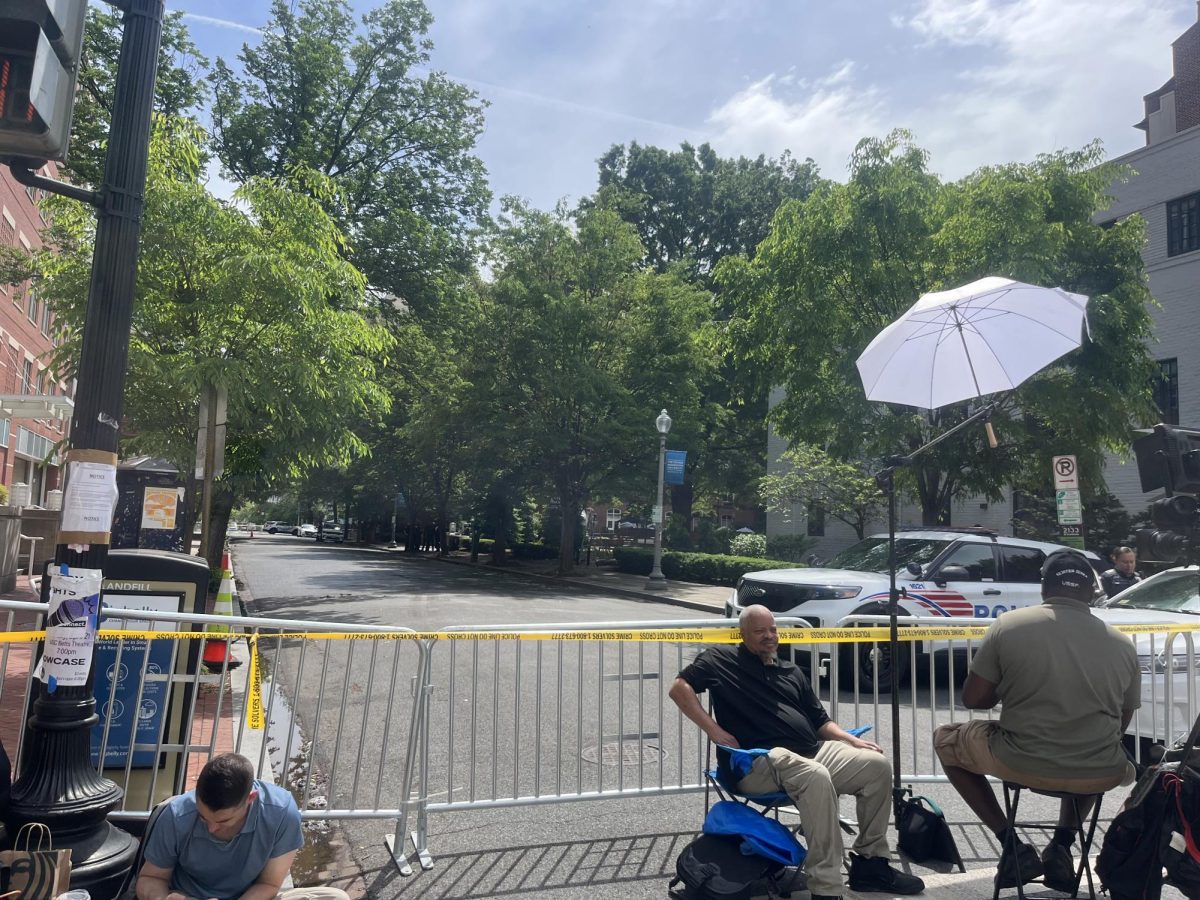Monsanto Executive Vice President and Chief Technology Officer Robert Fraley spoke about global food security and developments in agricultural technology Wednesday in Reiss Science Building in an event hosted by the Georgetown Lecture Fund.
Fraley said that he became interested in research in San Francisco during a peak in scientific development.
“I grew up in a small farm and was the first member of my family to go to college. I had the opportunity to attend the University of Illinois, where I was very interested in research. I then went to the University of California, San Francisco, when the whole biotech industry was getting started,” Fraley said. “The first gene clone experiments were being done at UCSF, and some of these experiments were already being applied to human health care.”
Fraley also spoke about the implications of growth population on food security, with a projected 9.5 billion people living on the planet by 2050.
“That means that by 2050, we will have to produce more food than we have in the entire history of the planet,” Fraley said. “This is important in both the food industry perspective and in the environmental perspective. If we farm the way we do today in 2050, we will have to basically plough up another large amount of land and risk the environment. The solution that I think is ideal is to find ways to farm smarter, better and in environmentally friendly ways.”
Fraley also said that the use of modern tools has and will have a significant impact on agriculture in the future.
“Modern tools have allowed us to change plant breeding,” Fraley said. “The world of plant breeding changed when scientists were able to sequence every single gene in a corn plant or in a potato plant, and now have the ways of being more precise, breed faster and breed more efficiently. This game-changing technology is going to increase fields and productivity and produce better seeds and higher levels of yields and production.”
According to Fraley, the use of genetically modified organisms, often referred to as GMOs, has spread quickly since 1990.
“GMOs have been important, we launched our first product in the 1990s and you can see the adoption of the technology as GMOs are now being grown in 30 countries around the world,” Fraley said. “The tools are both utilized by both large farmers and small farmers, basically because they provided growth and tools for increasing production and other benefits.”
Community Garden President Michelle Stearn (SFS ’15) said she does not approve of Monsanto’s corporate control of GMOs and crops.
“Let’s say we set precautionary concerns about human and environmental health aside — then, in theory, I would be alright with GMOs, assuming they would be to increase yield or decrease pesticide use,” Stearn said. “But on principle, I’m not alright with the monopolistic corporate takeover of the entire value chain of crop production by Monsanto and other biotech crops, who now control everything from seeds to pesticides to cultivation. To me, injustice against farmers on an international scale can’t be rationalized by supposed increased yields or so-called biotechnology.”
Cecilia Carvalho (MSB ’18), who attended the event, said she disapproves of the company’s practices.
“He talked about the genome as if it was a database, that farmers all over the world could access, and he did not mention that there is a membership fee, to access this database,” Carvalho said. “Farmers are pressured into joining and paying a lot of money for their seeds, because their competitors are able to sell at lower prices. This kind of pressure is what moves their company financially and is also what has led a lot of farmers in the United States to go bankrupt.”














